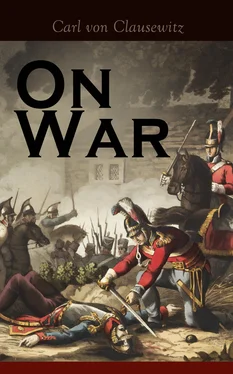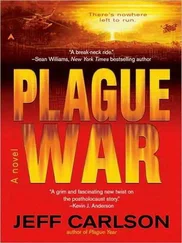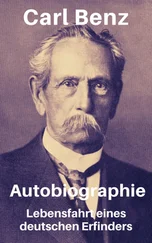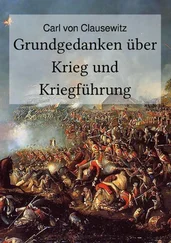As regards the strictly military side of this work, though the recent researches of the French General Staff into the records and documents of the Napoleonic period have shown conclusively that Clausewitz had never grasped the essential point of the Great Emperor’s strategic method, yet it is admitted that he has completely fathomed the spirit which gave life to the form; and notwithstanding the variations in application which have resulted from the progress of invention in every field of national activity (not in the technical improvements in armament alone), this spirit still remains the essential factor in the whole matter. Indeed, if anything, modern appliances have intensified its importance, for though, with equal armaments on both sides, the form of battles must always remain the same, the facility and certainty of combination which better methods of communicating orders and intelligence have conferred upon the Commanders has rendered the control of great masses immeasurably more certain than it was in the past.
Men kill each other at greater distances, it is true—but killing is a constant factor in all battles. The difference between “now and then” lies in this, that, thanks to the enormous increase in range (the essential feature in modern armaments), it is possible to concentrate by surprise, on any chosen spot, a man-killing power fully twentyfold greater than was conceivable in the days of Waterloo; and whereas in Napoleon’s time this concentration of man-killing power (which in his hands took the form of the great case-shot attack) depended almost entirely on the shape and condition of the ground, which might or might not be favourable, nowadays such concentration of fire-power is almost independent of the country altogether.
Thus, at Waterloo, Napoleon was compelled to wait till the ground became firm enough for his guns to gallop over; nowadays every gun at his disposal, and five times that number had he possessed them, might have opened on any point in the British position he had selected, as soon as it became light enough to see.
Or, to take a more modern instance, viz., the battle of St. Privat-Gravelotte, August 18, 1870, where the Germans were able to concentrate on both wings batteries of two hundred guns and upwards, it would have been practically impossible, owing to the section of the slopes of the French position, to carry out the old-fashioned case-shot attack at all. Nowadays there would be no difficulty in turning on the fire of two thousand guns on any point of the position, and switching this fire up and down the line like water from a fire-engine hose, if the occasion demanded such concentration.
But these alterations in method make no difference in the truth of the picture of War which Clausewitz presents, with which every soldier, and above all every Leader, should be saturated.
Death, wounds, suffering, and privation remain the same, whatever the weapons employed, and their reaction on the ultimate nature of man is the same now as in the struggle a century ago. It is this reaction that the Great Commander has to understand and prepare himself to control; and the task becomes ever greater as, fortunately for humanity, the opportunities for gathering experience become more rare.
In the end, and with every improvement in science, the result depends more and more on the character of the Leader and his power of resisting “the sensuous impressions of the battlefield.” Finally, for those who would fit themselves in advance for such responsibility, I know of no more inspiring advice than that given by Krishna to Arjuna ages ago, when the latter trembled before the awful responsibility of launching his Army against the hosts of the Pandav’s:
This Life within all living things, my Prince,
Hides beyond harm. Scorn thou to suffer, then,
For that which cannot suffer. Do thy part!
Be mindful of thy name, and tremble not.
Nought better can betide a martial soul
Than lawful war. Happy the warrior
To whom comes joy of battle....
. . . But if thou shunn'st
This honourable field—a Kshittriya—
If, knowing thy duty and thy task, thou bidd'st
Duty and task go by—that shall be sin!
And those to come shall speak thee infamy
From age to age. But infamy is worse
For men of noble blood to bear than death!
. . . . . .
Therefore arise, thou Son of Kunti! Brace
Thine arm for conflict; nerve thy heart to meet,
As things alike to thee, pleasure or pain,
Profit or ruin, victory or defeat.
So minded, gird thee to the fight, for so
Thou shalt not sin!
COL. F. N. MAUDE, C.B., late R.E.
PREFACE TO THE FIRST EDITION
Table of Contents
It will naturally excite surprise that a preface by a female hand should accompany a work on such a subject as the present. For my friends no explanation of the circumstance is required; but I hope by a simple relation of the cause to clear myself of the appearance of presumption in the eyes also of those to whom I am not known.
The work to which these lines serve as a preface occupied almost entirely the last twelve years of the life of my inexpressibly beloved husband, who has unfortunately been torn too soon from myself and his country. To complete it was his most earnest desire; but it was not his intention that it should be published during his life; and if I tried to persuade him to alter that intention, he often answered, half in jest, but also, perhaps, half in a foreboding of early death: “ Thou shalt publish it.” These words (which in those happy days often drew tears from me, little as I was inclined to attach a serious meaning to them) make it now, in the opinion of my friends, a duty incumbent on me to introduce the posthumous works of my beloved husband, with a few prefatory lines from myself; and although here may be a difference of opinion on this point, still I am sure there will be no mistake as to the feeling which has prompted me to overcome the timidity which makes any such appearance, even in a subordinate part, so difficult for a woman.
It will be understood, as a matter of course, that I cannot have the most remote intention of considering myself as the real editress of a work which is far above the scope of my capacity: I only stand at its side as an affectionate companion on its entrance into the world. This position I may well claim, as a similar one was allowed me during its formation and progress. Those who are acquainted with our happy married life, and know how we shared everything with each other—not only joy and sorrow, but also every occupation, every interest of daily life—will understand that my beloved husband could not be occupied on a work of this kind without its being known to me. Therefore, no one can like me bear testimony to the zeal, to the love with which he laboured on it, to the hopes which he bound up with it, as well as the manner and time of its elaboration. His richly gifted mind had from his early youth longed for light and truth, and, varied as were his talents, still he had chiefly directed his reflections to the science of war, to which the duties of his profession called him, and which are of such importance for the benefit of States. Scharnhorst was the first to lead him into the right road, and his subsequent appointment in 1810 as Instructor at the General War School, as well as the honour conferred on him at the same time of giving military instruction to H.R.H. the Crown Prince, tended further to give his investigations and studies that direction, and to lead him to put down in writing whatever conclusions he arrived at. A paper with which he finished the instruction of H.R.H. the Crown Prince contains the germ of his subsequent works. But it was in the year 1816, at Coblentz, that he first devoted himself again to scientific labours, and to collecting the fruits which his rich experience in those four eventful years had brought to maturity. He wrote down his views, in the first place, in short essays, only loosely connected with each other. The following, without date, which has been found amongst his papers, seems to belong to those early days.
Читать дальше












